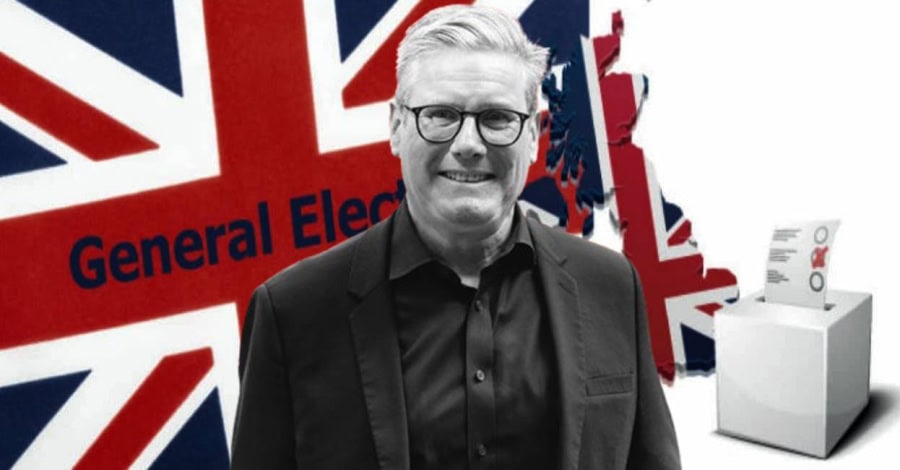LONDON – Labour Party clinched landslide victory in general elections and party front-runner Keir Starmer is set to take reigns as the country’s next Prime Minister.
As poll findings stunned everybody, Starmer is set to take role of British premier after party secured decisive victory in general elections.
British politician is a seasoned lawyer and ex-official of public prosecutions, who dedicated several years to transforming Labour into a more centrist and electable party after its major defeat in the 2019 election under Jeremy Corbyn.
Starmer hailed from a working-class background, with mother employed by National Health Service and his father working as a toolmaker.
After completing law at Leeds University, where he graduated with a first-class in 1985. He advanced his studies at Oxford, getting a Bachelor of Civil Law (BCL) degree in 1986. He enjoyed a successful legal career before transitioning to politics in 2015. As leader of Labour, he endeavored to distance the party from its left-wing elements, including suspending Corbyn over remarks about antisemitism within the party.
Although he faced criticism from some left-leaning members for retreating from certain policy promises, Starmer’s more moderate stance seems to have resonated with voters, who are attracted to his commitment to stability and his initial steps towards key priorities like reducing NHS waiting lists and increasing the number of teachers and police officers.
Starmer also pledged to negotiate a better deal with the European Union to lessen the economic impact of Brexit.
Keir Starmer
| Sir Keir Rodney Starmer | Details |
| Current Position | Prime Minister-Designate of the United Kingdom, Leader of the Labour Party since 2020, and Member of Parliament for Holborn and St Pancras since 2015 |
| Previous Roles | Leader of the Opposition (2020-2024), Director of Public Prosecutions (2008-2013) |
| Early Life | Born in London, raised in Surrey; attended Reigate Grammar School (which became private during his time there); joined the Labour Party Young Socialists at age 16 |
| Education | Bachelor of Laws from University of Leeds (1985), Bachelor of Civil Law from St Edmund Hall, University of Oxford (1986) |
| Legal Career | Called to the bar; practised in criminal defence and human rights; human rights adviser to Northern Ireland Policing Board; appointed Queen’s Counsel in 2002; cited work on policing in Northern Ireland as key influence for entering politics |
| Major Cases | Stephen Lawrence murder case (as Director of Public Prosecutions) |
| Honours | Knight Commander of the Order of the Bath (KCB) in 2014 for services to law and criminal justice |
| Political Career | Elected MP in 2015; supported Remain in 2016 EU referendum; Shadow Minister for Immigration under Jeremy Corbyn, resigned in June 2016; appointed Shadow Secretary of State for Exiting the EU in 2016, advocated second Brexit referendum; succeeded Corbyn as Labour leader in 2020 on a left-wing platform |
| Leadership of Labour | Shifted Labour towards the political centre; focused on eliminating antisemitism within the party; praised for antisemitism reforms and improving party credibility; criticized for treatment of leftist members |
| Government Missions | Set out five key missions in 2023: economic growth, health, clean energy, crime, and education |
| 2024 General Election | Led Labour to a landslide victory on 5 July 2024, ending 14 years of Conservative rule, similar to Tony Blair’s 1997 victory |










